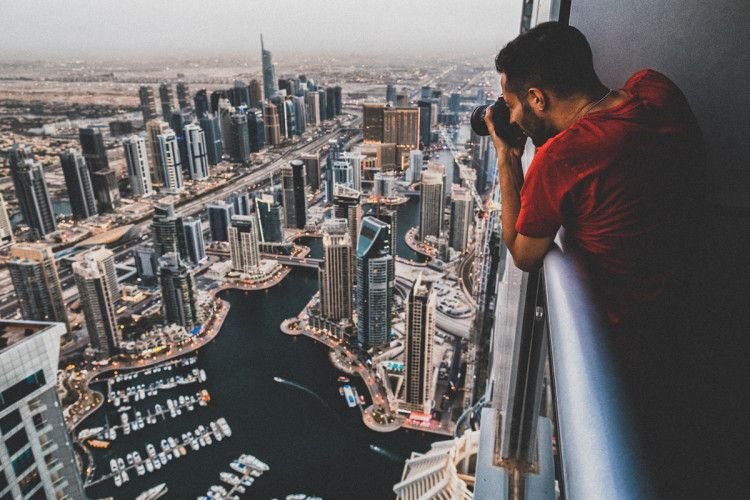
How did you get your start in photography? Have you always done what you’re doing now, or did you start with one or many genres of work and then gravitate to your current style?
Well, I’m not the photographer that was given a camera at a young age or the photographer that followed in his father’s footsteps. I’m also not the photographer with a darkroom and film background. I actually never had any desire to become a photographer at all. I was a freelance graphic designer for NBC, Universal Studios, MGM, A&E, FOX, Disney, and many others — who one day decided to put everything he owned in a storage unit and follow his dream of world travel.
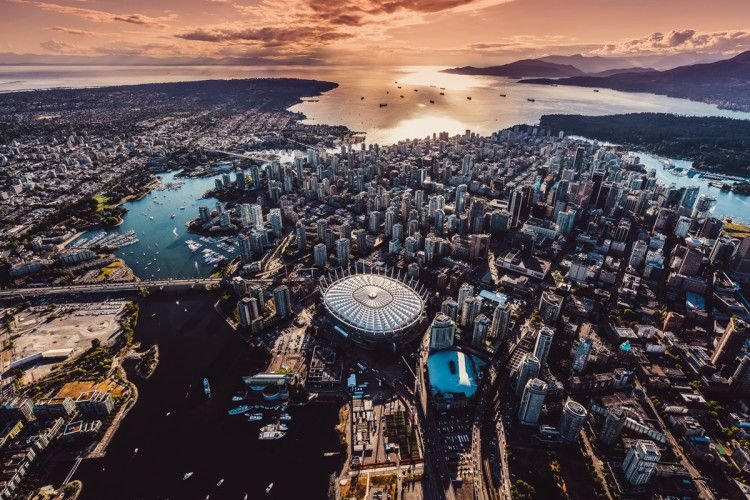
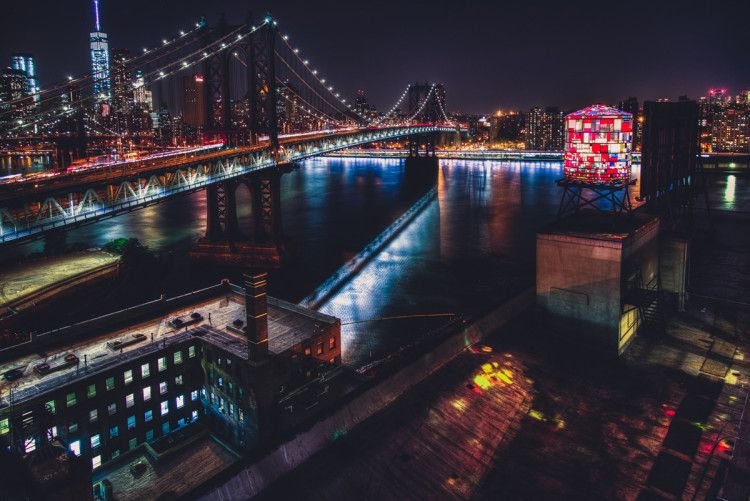
I know it sounds like I had everything figured out but I had no idea how I was going to make it work. I had the confidence that it would work itself out, but a lot of the time it was hope. I decided to come up with a monthly figure that I needed each month to travel and live on, then I divided that number by 3 and pitched my top 3 clients an all you can eat package and suggested a 6 month retainer. Between the 3 clients I reached the figure I needed each month and I was able to lock in paychecks for the next 6 months.
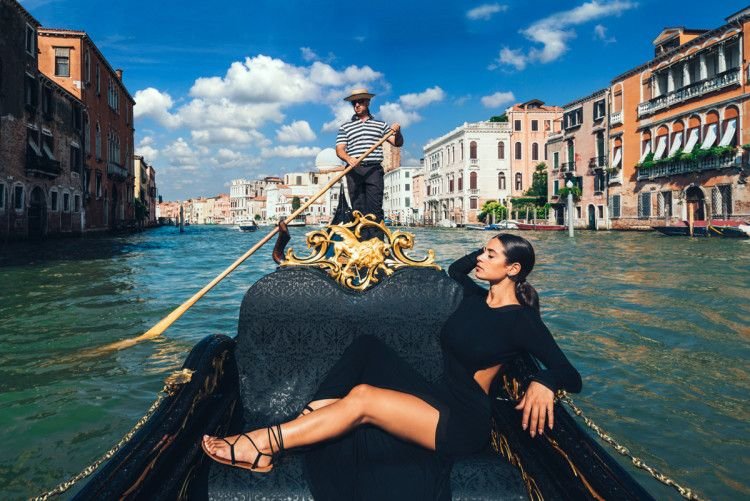
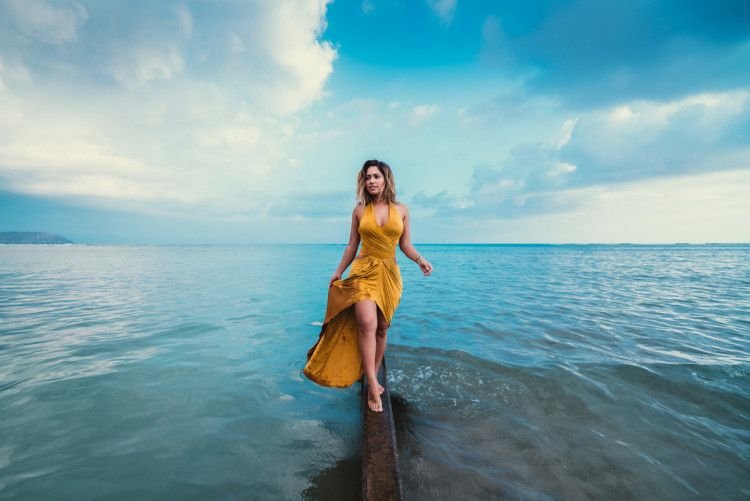
That idea landed me on 62 flights in 10 months and provided me with 2 ½ years of world travel while living out of a suitcase. I was living a life worth documenting so I documented it just like anyone else would. Photography itself started to become appealing when all the iPhone photo editing apps started to emerge.
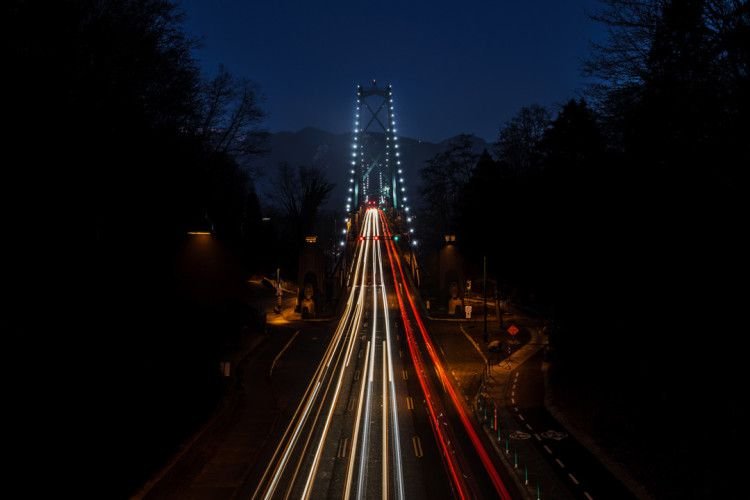
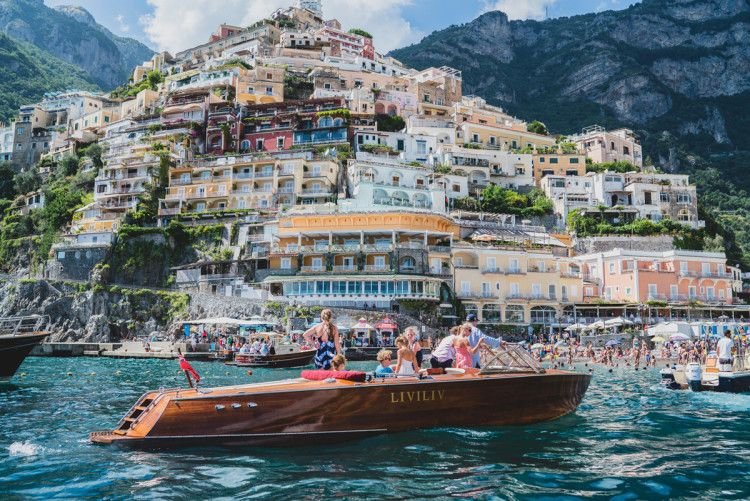
Having a mini Photoshop in my pocket appealed to my graphic design background and when Instagram came out, it was icing on the cake. Photo editing apps and Instagram gave me a greater purpose to share my photos in real time with those I was out of touch with, rather than having them just sit on my phone. That’s when I went from taking point and shoot vacation photos to putting thought, effort and creativity into each photo. I became passionate about it and I wanted to become better. The study and learning process is what got me into photography.
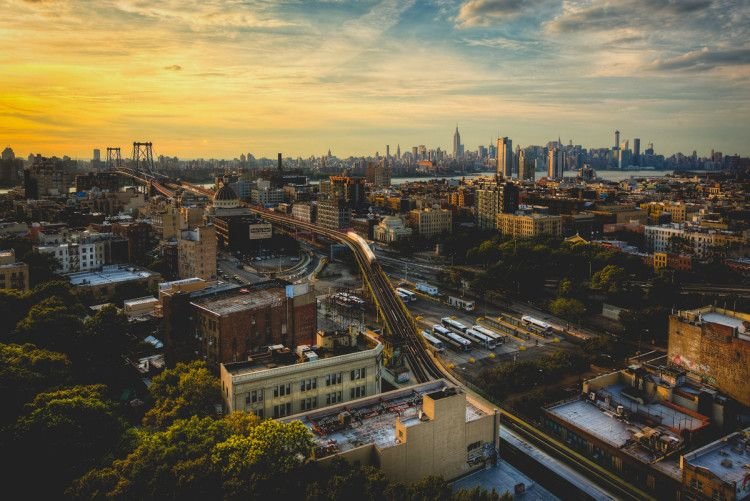
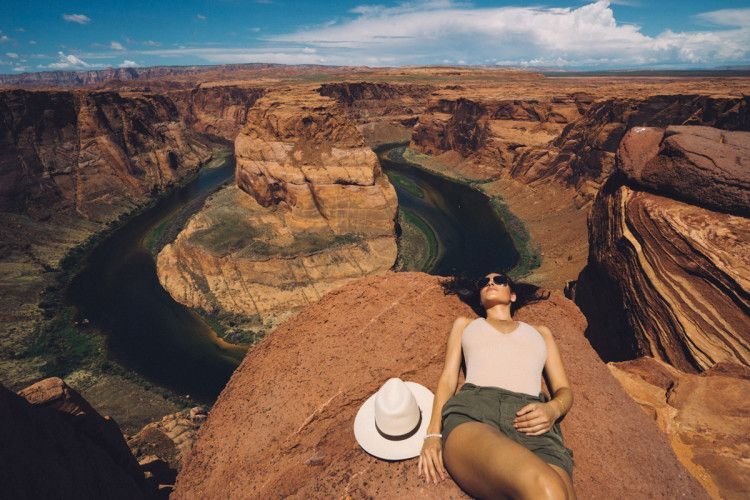
As time went on and I felt like I was getting to a place that I was comfortable with in my photography. I knew I had another talent to offer my network of friends so I began putting the word out and swinging for the fences when looking for new opportunities.

Prior to photography I worked on some big projects as a graphic designer and I definitely had to pay my my dues. I went from being a starving artist all the way to working on the Dark Knight, Twilight, New Moon, WATCHMEN and countless other great projects. But once I decided to take the leap into becoming a professional photographer I realized I was a starving artist all over again — and I hated it.


I hit the reset button on my career at midlife. I went from the peak of my design career and having 15+ years experience under my belt to being an amateur without any experience under my belt and a world full of competition all over again. I did my best to leverage both backgrounds in my pitches while I continued to aim for gigs out of my ballpark. I had nothing to lose.
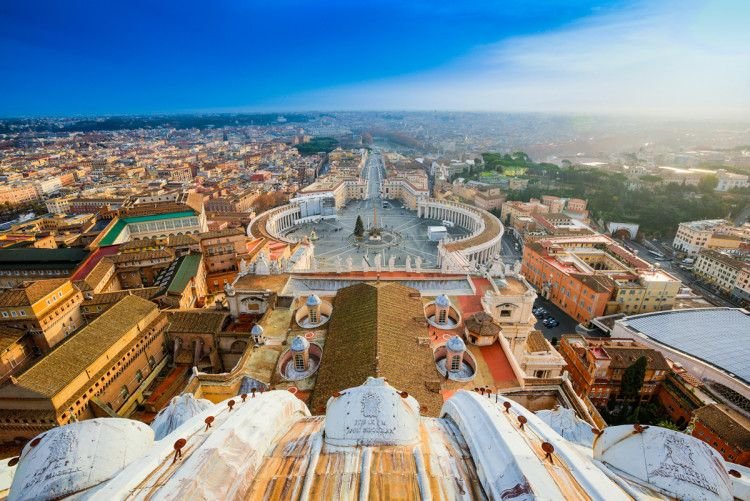
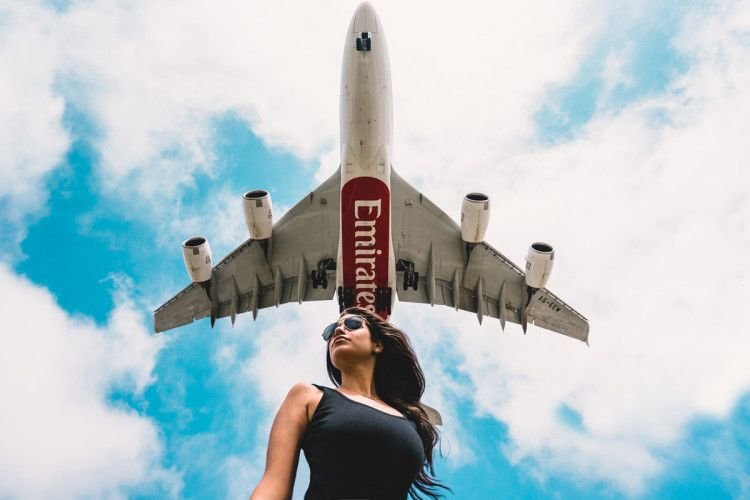
Because I was traveling, I had a lot of travel photos. I decided to make a website with my photo work and it was all travel work and I labeled myself a Travel Photographer. Once I had some decent landscape and cityscape shots, my friends in the music industry started to notice and opportunities in music started to land. I used each one as a launchpad to get me to the next level.

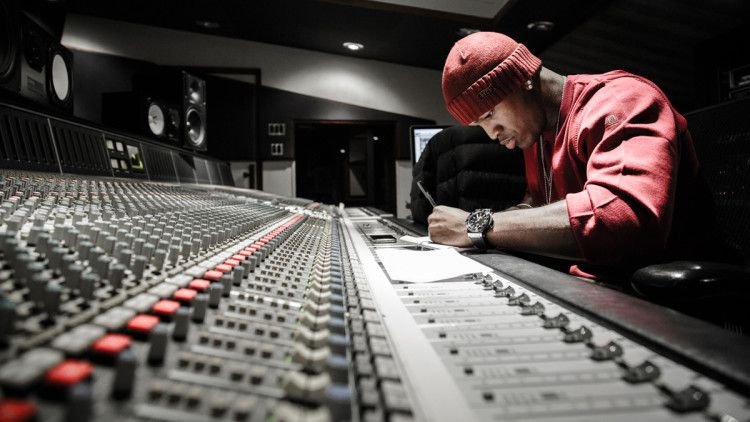
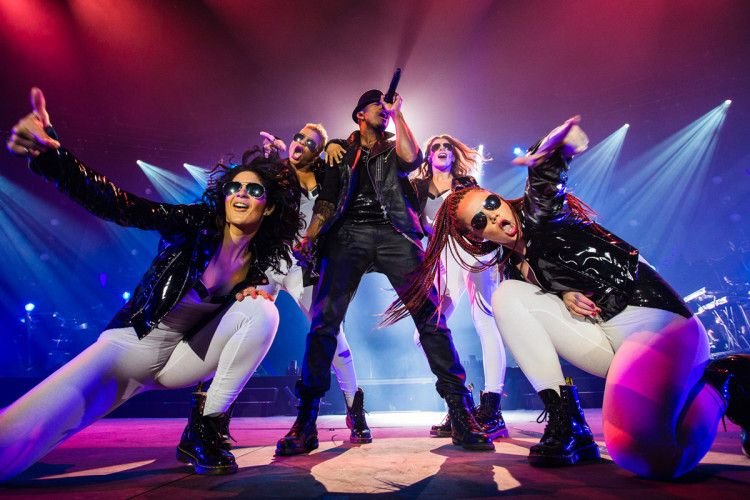
I ended up going on tour with Ne-Yo, shooting the top 5 EDM DJs on 5 different continents and winning a photography award all in my first 2 years. A lot of you may ask how? Hustle and persistence is all I can say to that. I believe you have to align yourself with the opportunities you want and you have to be strategic and persistent. Find the gatekeepers that hold the power to what you want and beat down doors until someone lets you in. Everyone has something they need and something they can offer; it’s up to you to connect those dots.
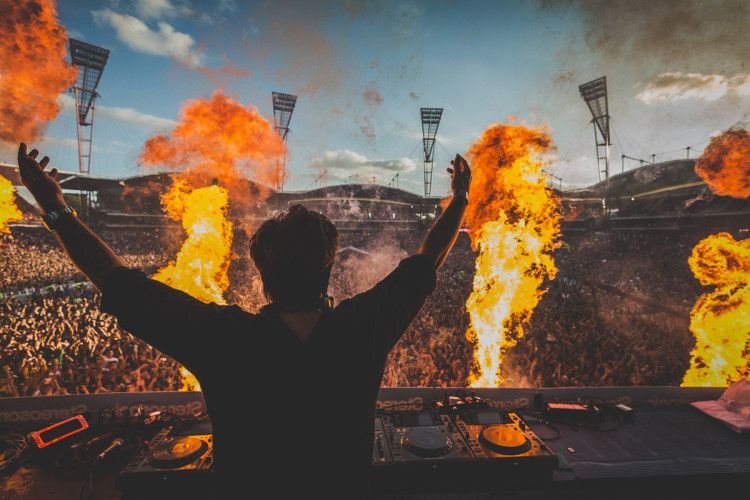
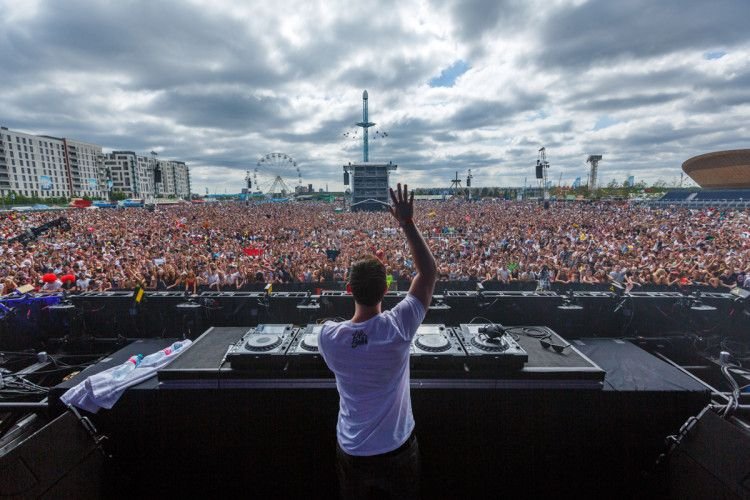
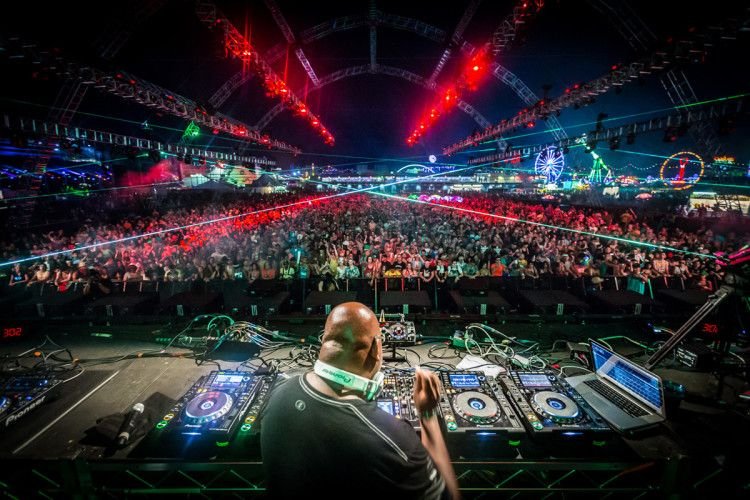
Being a great photographer in 2016 isn’t enough. You have to be a great marketer. An ‘ok’ photographer who is great at marketing can make it further than a great photographer who is terrible at marketing. I don’t think that’s fair but that’s the game and sometimes you can’t change the game, all you can do is play it.
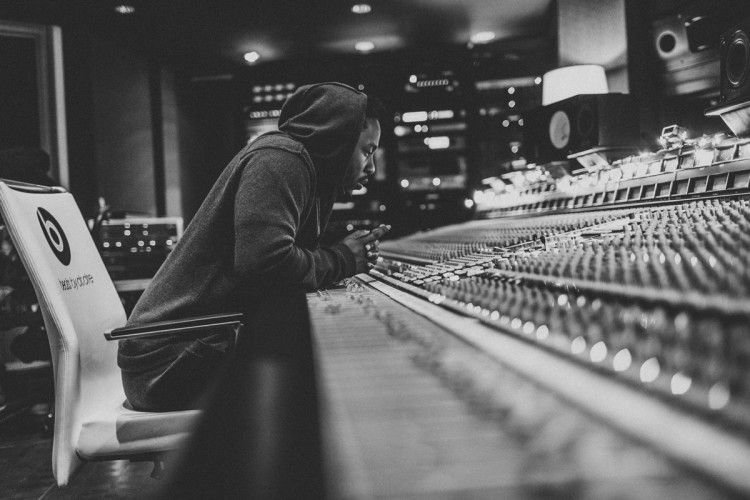
What led to you getting such intimate access with Kendrick Lamar?
Relationships. I believe it’s a combination of trust, respect for my work and knowing the right people. Growing up we all used to hear the phrase, “It’s not what you know, it’s who you know,” — but I disagree. It’s definitely both.
Just because you know someone doesn’t mean they want to put their name on the line and vouch for you. If they vouch for you it’s because they believe in you and your talent. They’re co-signing you and putting their reputation on the line for you.
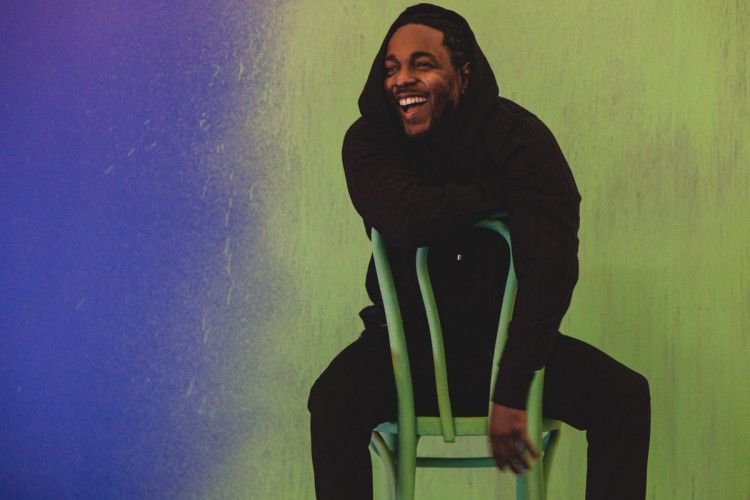
If you happen to get in because you knew someone, it doesn’t mean you’re gonna know everyone involved. What happens when you’re in a room of 20 extremely talented people and all you know is that one person who got you in the room? Now the other 19 people are looking at you, curious about what you do that landed you in the same room as them. That’s where what you know comes into play. If you’re in the room because of who you know but not what you know, how valuable are you? How respected will you be? Once everyone in that room gets to know you and your work they could become great publicists for you. There’s no better form of advertising in the music business than word of mouth. Personal relationships are everything.
What challenges did you face during your coverage?
You can’t plan for a lot of this kind of work because it’s all run & gun. You don’t have the luxury to set up in every situation. You just have to work on the fly. Working on the fly comes with its own sets of challenges whether they’re technical challenges, challenges with lighting, challenges with time, rules from third parties, etc. While all of these challenges are challenges from the outside world, they rarely bothered me. The only challenges that bothered me were the ones going on in my head.
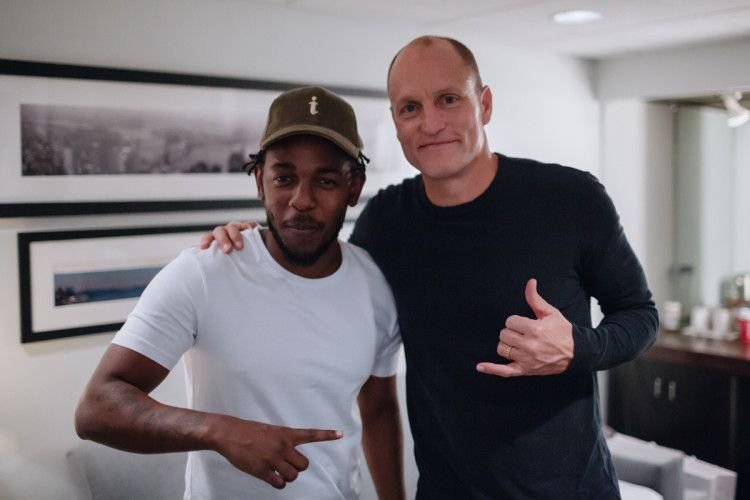
Every time I work with Kendrick I feel like I’m documenting history. You could argue that any frozen moment in time is history, but this is different. It feels important, significant, iconic and historic. I’m competitive by nature so I always beat myself up to get the best shot I can get because every shot could be a once in a lifetime shot. Do I shoot wide? Do I shoot close up? How much depth of field should I use? Should I stand behind him and get a hero shot or stand in front and capture an expression? You also can’t move people around because it’s in the moment. You have to work with what you have and make split second decisions. We’re documenting real life and life doesn’t wait for anyone. How many times am I going to be at the Saturday Night Live studio to get a shot of Kendrick as soon as he comes off stage? Those moments are staples in someone’s career and there aren’t any do overs.
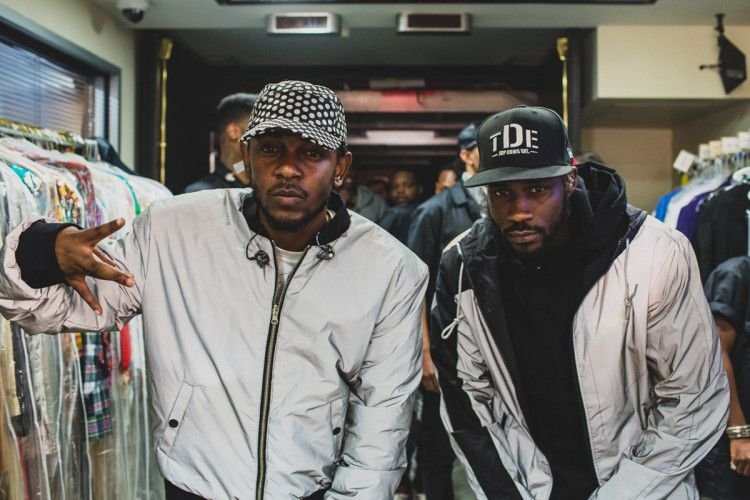
I learn more from the shots I miss than the shots I take. The ones I’ve missed eat me alive inside and they fuel this fire inside of me to make me never want to miss another one again. All you can do is be prepared. Knowing where people are going to be before they get there is something photography doesn’t teach you, but it’s one of the most important things you can learn when documenting someone.
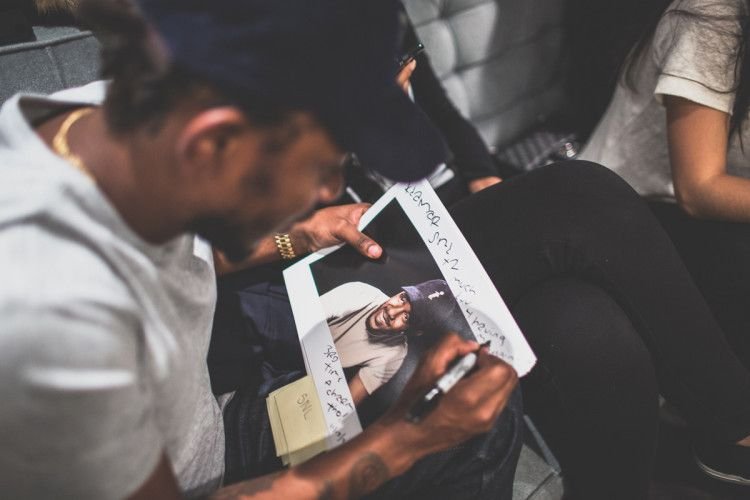
What was your favorite part of this gig? Album creation/studio work, documenting travels, photographing live shows, or something else?
I really enjoy all of it. There’s a lot to learn and a lot to pick up on. There are so many life lessons and gems being passed down whether it’s from OGs or people who are really good at what they do. Photography becomes an accessory to the experience for me. If you focus too much on photography in those situations you miss out on learning about life. By all means, do your job, but also appreciate where you are and take it in.
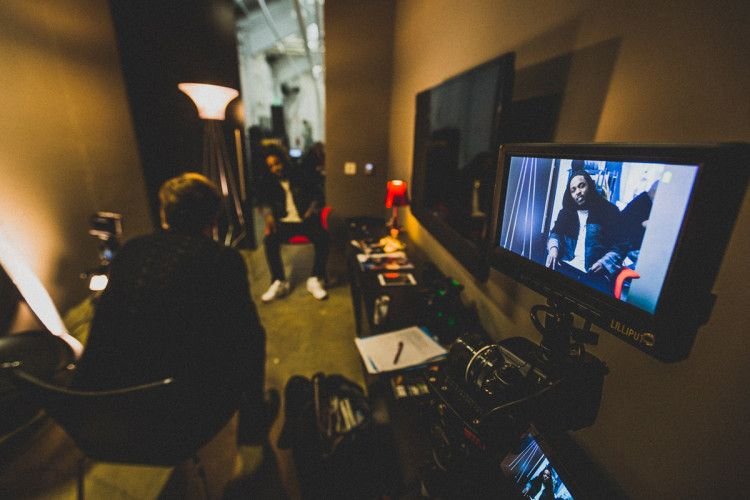
But if you want a more specific answer, I guess my favorite part of working with an artist, aside from the travel part of it is either 1. Being on stage in an artist’s hometown when the beat from one of their biggest songs drops and the crowd goes crazy. Feeling that energy on stage is a rush in and of itself. Or 2. Being around the creative process and hearing an amazing song or album before it comes out. Vibing out with only a handful of people in the studio that know how much of an impact that song or album being worked on is going to have on the public once it’s released. And knowing before anyone else in the world knows it’s coming. It brings back the little kid excitement you had when you were younger. Sometimes it’s not until questions like these come up that I realize I had a front row seat to witness an album go from concept to completion, then onto 9 Grammy nominations and onto 5 Grammy Awards. That’s real good stuff.

Was this pretty close to what you experience in regular daily life, or were you in an unfamiliar world that you had to learn to adjust to?
I wouldn’t say it was unfamiliar but it’s not every day either. Our work ethic and hours are the same. Our travel is the same. Hanging out with a large group of friends and the way we eat are the same — but hanging out in Compton/Watts, the Bermuda Triangle on Halloween, performing with an 84 piece National Symphony Orchestra in D.C., visiting the White House and countless other experiences are definitely different.
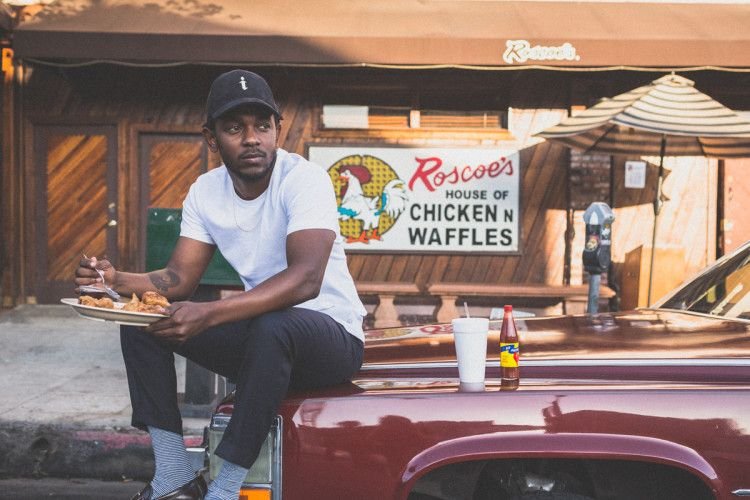
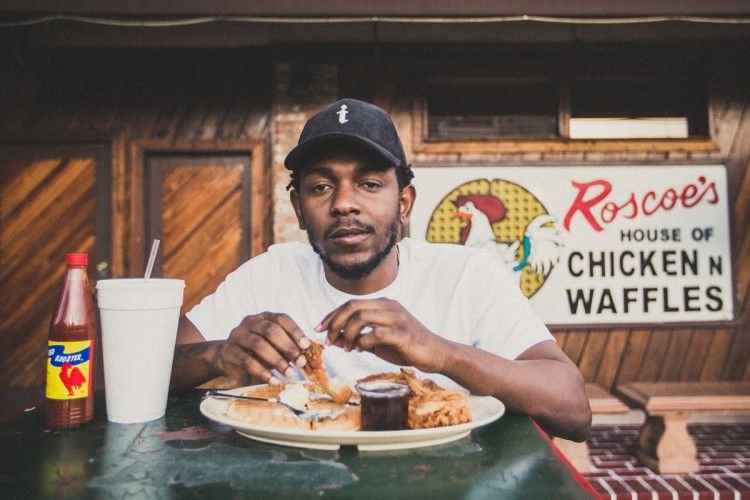
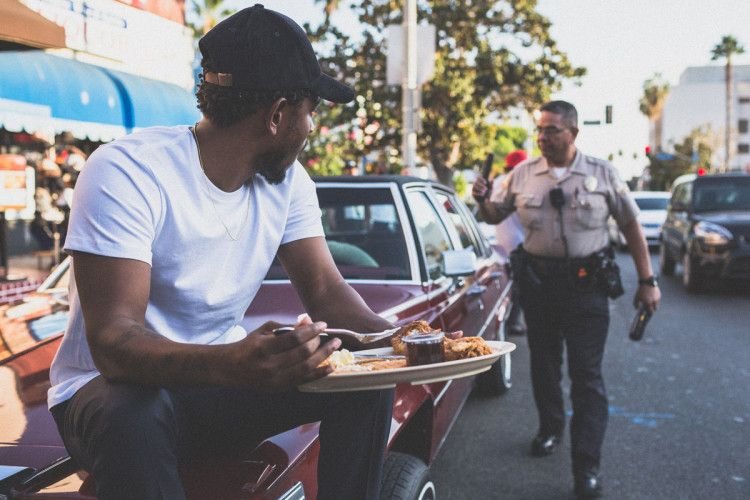
Did you approach this as more of a fly on the wall, sit back and document what’s happening without being noticed type thing, or were you right in the mix of everything that was happening?
90% of the time I try to be a fly on the wall. I’ll find a spot in the room and post up against the wall and be discreet and fire off some shots. Other times I’ll set my camera down and remote trigger it from my phone. I’m not an invasive, in your face person with a camera. However, if there is a once in a lifetime shot and the only way for me to get a good shot is to be right in the mix of everything, you can find me in the mix of everything.
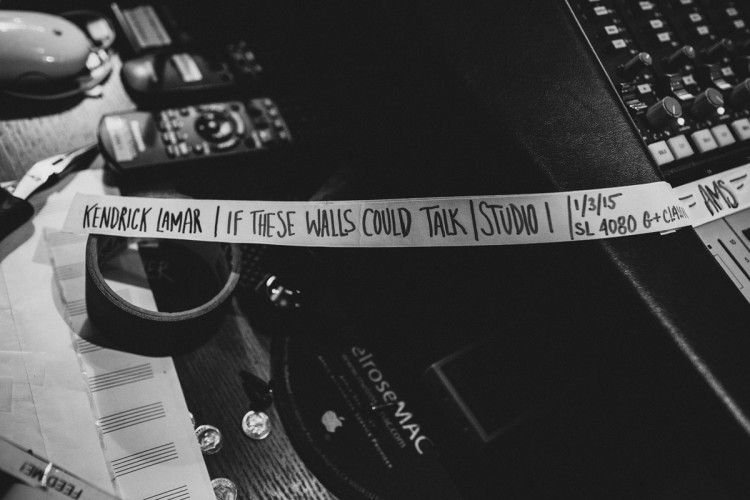
How much time did you spend working with Kendrick and crew? Did you find it became easier to get the shots you wanted as time went on?
We were practically in the studio from sunset to sunrise every day during the To Pimp A Butterfly sessions. Shots did get easier as time went on but not because of the location or conditions I was shooting in, but because of how often I was around and the level of trust that was being formed over time.
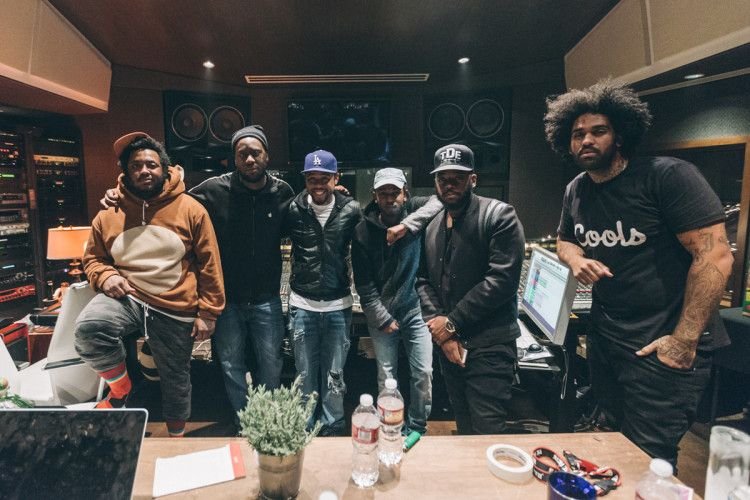
There’s a lot of responsibility that comes with working with a high profile artist. Maybe not for the photographer who has 5 minutes to shoot an artist and you never see them again. But for a personal photographer to someone who tours and moves with that artist from one event to another, backstage, in the studio, sitting in on private conversations, dressing rooms, soundchecks, rehearsals, around their relationship — you’re given a lot of access. And with that access you almost become more of a liability than an asset.
I remember them telling me to shoot video in the studio and it made me nervous. Having that content is a huge responsibility. After I leave the studio I would always keep my memory card on me and my camera in my bag. The memory card never left my side in case my car got broken into or my camera got stolen, the memory card wouldn’t be stolen with it. I never wanted to be the weakest link in the group or be the reason a song or video got leaked. That’s what made me nervous. I had to make sure that content was bulletproof.
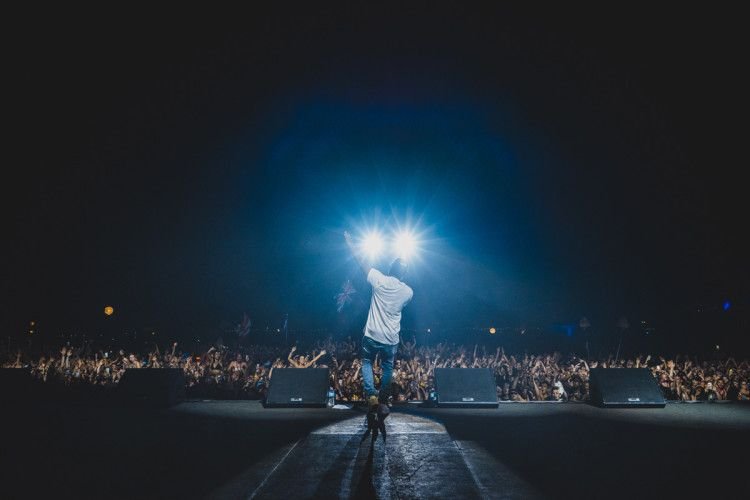
Once you finished your coverage, did you come out of it feeling like you had become friends with him and his crew, or was it all very professional?
Yeah, at the end of the day, I don’t think these opportunities would present themselves if we didn’t connect like that. It’s a very tight group. We’re obviously from two different coasts and although we had different childhoods and upbringings, there are a lot of similarities. The biggest thing for me was seeing the genuine childhood friendships they have with one another. It reminds me a lot of how I grew up and it was cool to see people still have that at their age and not have it fade out due to everyone taking a different path. They stuck together and that’s why it’s like a family
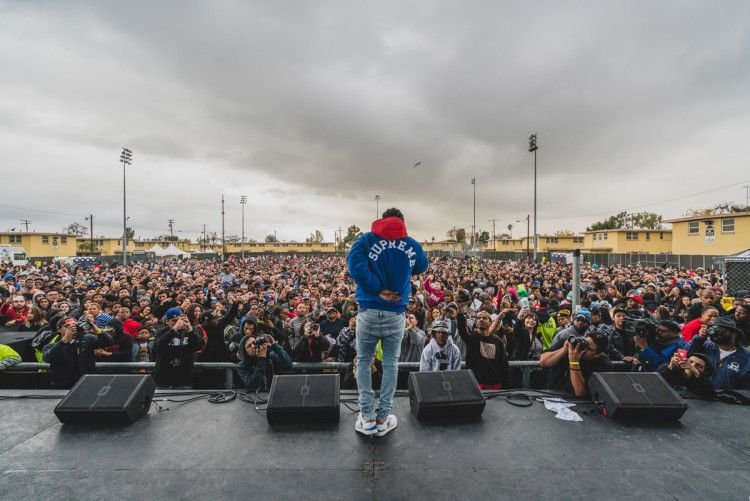
When you’re processing your images, do you have a specific overall look and vibe you try to achieve, or do you process each image so that it looks its best without regard to a certain feel?
When I shoot for myself I tend to process my images with a certain look that appeals to just me. When I shoot with a subject (artist/model), I’ll factor in their aesthetic and then apply my own style on top of it to have both our styles mesh with one another. I think you should have a specific look to your image. That’s what gives you your signature.
Is there a particular moment or story that you came away from this with that you’ll always remember?
Even if my run ended today, the life experiences I can take away from what photography has allowed me to do is more than I ever thought possible. Being a graphic designer alone wouldn’t have gotten me to experience the things I have. I’m glad I made the transition.
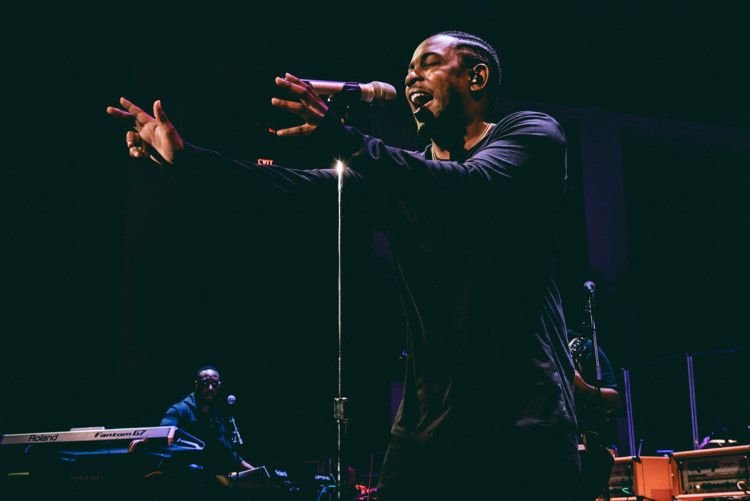
Anytime you’re in a position to document life it’s probably going to be memorable one way or another. One of the best moments to date was when Kendrick and TDE performed at the Made in America Festival in Los Angeles in 2013. It was a hometown performance and he headlined the show with people in attendance as far back as your eyes can see. Seeing that amount of people chant, jump, and vibe out on beat was nuts. Unfortunately there was a Live Stream in place and I couldn’t get center stage like I normally would but now I know what I would do next time.
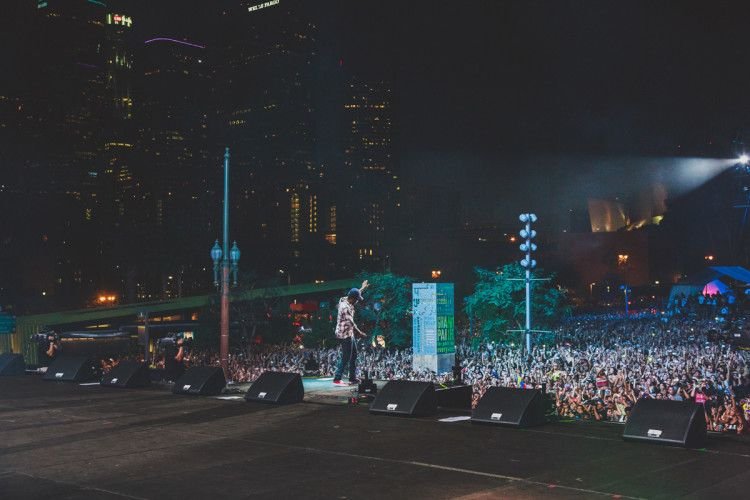
Final Thoughts?
I first started coming here to Scott’s blog and KelbyOne in 2012 when I began studying photography. The amount of technical knowledge needed seemed so overwhelming between camera gear, lighting gear, camera tricks, producing a shoot, etc. I saw so many great people doing so many great things in photography and it made me want to give up at times. I felt I should just stick to what I know because I don’t have any chance competing with those who came before me and have years and in some cases, decades of experiences.
Christmas Eve 2012, my Mom was diagnosed with cancer. As an only child, I went into isolation. I didn’t want to talk, laugh, eat, do anything or hang out with anyone. I just wanted to be alone with my thoughts. I dealt with a lot of emotions during that time — anger, sadness, motivation, determination, focus — and a lot of time on my hands. I found comfort in laying in bed, listening and watching video tutorials. I spent 90 hours watching KelbyOne and YouTube videos over the course of that week. If it weren’t for that week, I’m not sure I would have ever devoted that many hours in such a short period of time into photography. It was because of my situation that made everything else around me come to a screeching halt. Nothing else mattered after I found out my Mom was sick — and the only thing that could keep my mind somewhat occupied was my new found passion for photography.
After that, I had this determination to succeed. After feeling sad, I got angry, and after I got angry, I got motivated. My motivation, determination and persistence is what allowed me to do everything I’ve done in photography. I didn’t have experience on my side, I certainly didn’t have the years of training on my side and I didn’t have much variety in my portfolio at the time. I owe a lot to this site for helping me learn, and now I’ve come full circle. From a student to an interview. An overnight success takes at least 5 years.
You can see more of Jeff’s work at JeffLombardo.com, and follow him on Instagram, and Twitter.
Great images and fantastic back story Jeff!